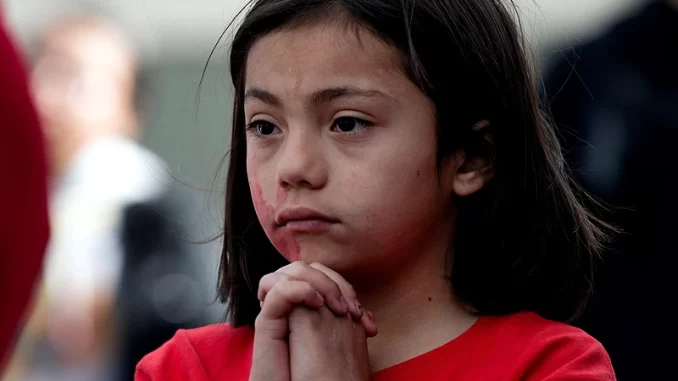

OAN’s Brooke Mallory
12:10 PM – Thursday, June 15, 2023
In custody and adoption procedures, the Supreme Court upheld a federal law meant to keep Native American children tied to Native families.
Advertisement
A 7-2 majority of the Supreme Court dismissed challenges to the Indian Child Welfare Act that were prompted by numerous states and White families who desired to permanently adopt Native children. They claimed that they were being discriminated against and disadvantaged in violation of the Constitution’s equal protection rights.
“They argue that it exceeds federal authority, infringes state sovereignty, and discriminates on the basis of race,” Justice Amy Coney Barrett wrote in the court’s opinion for the case of Haaland v. Brackeen. “The United States, joined by several Indian Tribes, defends the law. The issues are complicated…But the bottom line is that we reject all of petitioners’ challenges to the statute, some on the merits and others for lack of standing.”
The conflict involves claims of tribal sovereignty, state rights, and racial discrimination.
The issue at hand was whether the Supreme Court should overturn or dismantle the Indian Child Welfare Act of 1978, which was enacted to safeguard Native American rights in state child custody cases. Tribal elders have long advocated for it as a method of maintaining close families and keeping their indigenous culture alive.
The case addressed parts of a special connection between Native tribes and the federal government, as well as state courts’ jurisdiction to extensively establish the discretionary “best interests” of children in placement hearings.
Jennifer and Chad Brackeen of Fort Worth, Texas, were among those who challenged the rule when they fostered, then adopted, a boy named in court records as “A.L.M.” in 2016, after his mother, a Navajo Nation member, was unable to care for him. The tribe had attempted to hand over the child to unrelated out-of-state tribal members.
The Brackeens finally gained custody of A.L.M, but they now desire to adopt the boy’s half-sister, known in state court as “Y.R.J.”
“It’s been three-and-a-half years in court, and we have not been able to finalize the adoption,” Chad Brackeen told the press. “Ultimately, these two siblings belong together.”
However, in separate amicus briefs, more than three-fourths of the 574 federally-recognized American tribes told the Supreme Court that the statute has been in effect for 44 years and is working.
“The precedent of the Supreme Court is that Indian tribes are political groups of people, they are not racial groups of people,” said Deputy Attorney General of the Cherokee Nation Chrissi Ross Nimmo. “Tribes determine citizenship… just like countries.”
Many tribes warn of a greater loss of political sovereignty if the ICWA legislation is overturned or reduced in areas such as health care, education, and housing, all of which are regulated by distinct federal statutes.
Texas, along with Indiana and Louisiana, have also challenged the federal statute, claiming that it exceeds the federal government’s power over state child custody proceedings.
Stay informed! Receive breaking news blasts directly to your inbox for free. Subscribe here. https://www.oann.com/alerts

